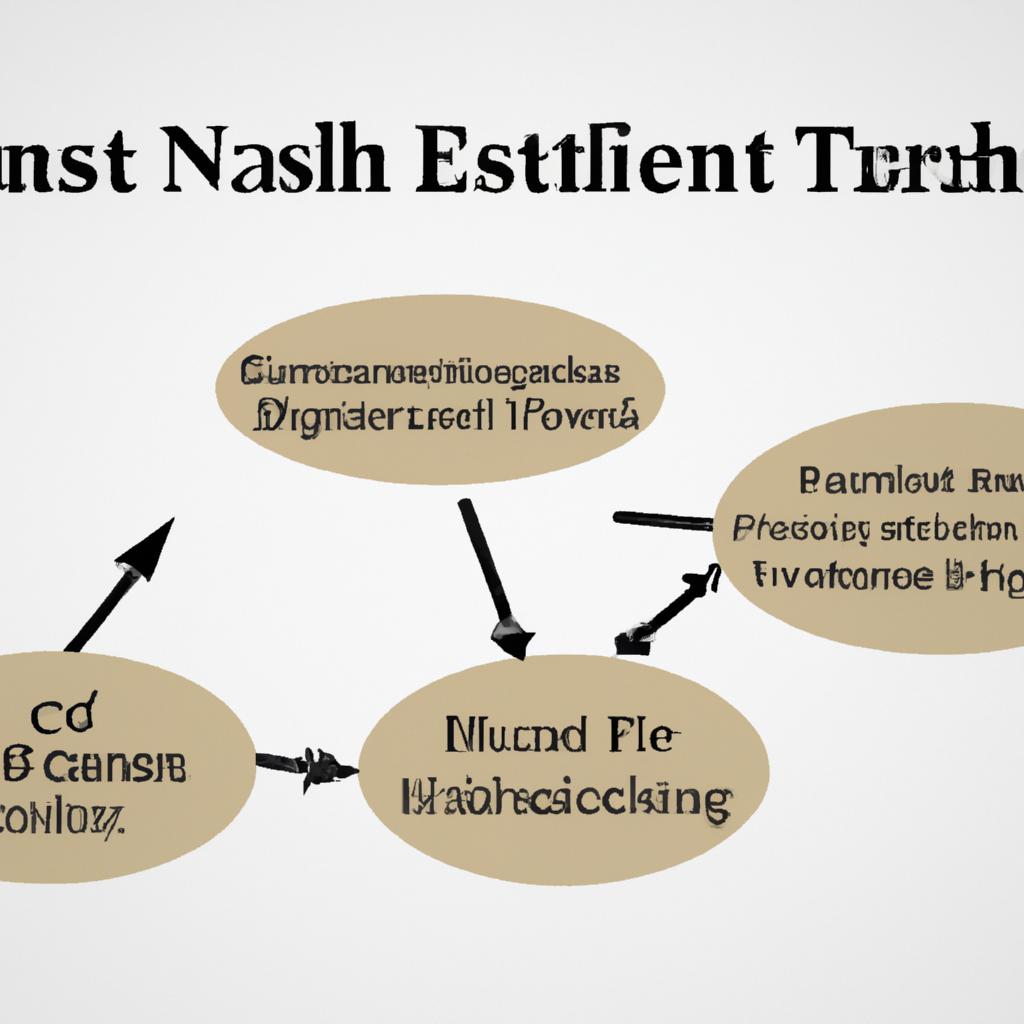In the intricate world of estate planning, navigating the legal requirements surrounding the administration of a trust following the passing of its settlor can be a daunting task. One crucial step in this process is obtaining an Employer Identification Number (EIN) for the trust of the deceased individual. At Morgan Legal Group in New York City, our team of experienced attorneys specializes in guiding clients through the intricate procedures involved in post-mortem trust administration. Let us assist you in ensuring that your loved one’s trust is managed in compliance with all legal regulations.
– Understanding the Importance of Applying for an EIN for a Trust of a Deceased Individual
When a loved one passes away, their estate may be transferred into a trust for the benefit of their beneficiaries. It is crucial to understand the importance of applying for an Employer Identification Number (EIN) for the trust of a deceased individual. By obtaining an EIN, the trust will be recognized as a separate legal entity and will be able to open bank accounts, file taxes, and conduct financial transactions on behalf of the trust.
Applying for an EIN for a trust of a deceased individual is a necessary step in the estate planning process. Without an EIN, the trust may face legal and financial complications. It is essential to consult with a knowledgeable attorney to ensure that the trust is properly established and that all necessary paperwork, including the application for an EIN, is completed accurately and in a timely manner. By taking the necessary steps to obtain an EIN for the trust, you can protect the assets of the trust and ensure that the wishes of the deceased individual are carried out effectively.

- Navigating the Complex Process of Obtaining an EIN for a Deceased’s Trust
When it comes to the intricate process of obtaining an EIN for a deceased individual’s trust, there are several key steps that must be carefully navigated. One of the primary considerations is determining the type of trust that was established by the deceased. Whether it is a revocable trust, irrevocable trust, or another type of trust, each carries its own set of requirements for obtaining an EIN.
Additionally, it is crucial to gather all necessary documentation and information before applying for the EIN. This may include the deceased individual’s Social Security Number, as well as detailed information about the trust itself. By following the proper procedures and ensuring all necessary information is provided, you can successfully navigate the complex process of obtaining an EIN for a deceased’s trust.

– Key Considerations for Successfully Applying for an EIN for a Trust After the Death of the Settlor
When applying for an Employer Identification Number (EIN) for a trust after the death of the settlor, there are several key considerations to keep in mind to ensure a successful application process:
- Legal Representation: It is highly recommended to seek the guidance of an experienced trust attorney to assist with the application process and ensure compliance with all legal requirements.
- Documentation: Gather all necessary documents related to the trust, including the trust instrument, death certificate of the settlor, and any relevant court orders or legal documents.
- Trustee Information: Provide accurate information about the trustee(s) of the trust, including their name, address, and Social Security Number.
Additionally, it is important to carefully review the information provided in the EIN application to avoid any delays or complications. By following these key considerations and working with a trusted legal advisor, you can navigate the process of applying for an EIN for a trust after the death of the settlor with confidence and ease.

– Leveraging Professional Expertise to Ensure Compliance and Efficiency in Obtaining an EIN for a Trust of a Deceased Individual
At Morgan Legal Group, we understand the complexities involved in obtaining an EIN for a trust of a deceased individual. Our team of professionals leverages their expertise to ensure compliance and efficiency throughout the process. By enlisting our services, you can rest assured that all legal requirements will be met, and the necessary documentation will be submitted accurately and promptly.
Our approach involves a thorough review of the trust documents and an analysis of the specific circumstances surrounding the deceased individual. We work closely with our clients to gather all relevant information and address any potential issues that may arise. With our guidance, you can navigate the intricacies of obtaining an EIN for a trust with confidence, knowing that you have a dedicated team of experts supporting you every step of the way. Trust Morgan Legal Group to streamline the process and provide you with peace of mind during this challenging time.
| EIN Application | Conducted by experienced professionals |
| Trust Document Review | Thorough analysis of trust documents |
| Compliance Assurance | Ensuring all legal requirements are met |
Q&A
Q: What is an EIN number and why is it important for a trust of a deceased individual?
A: An EIN number is an Employer Identification Number, and it is essential for the trust of a deceased individual as it allows the trust to open a bank account, file taxes, and carry out financial transactions on behalf of the deceased.
Q: How can I apply for an EIN for a trust of a deceased person?
A: To apply for an EIN for a trust of a deceased person, you can complete an online application through the IRS website or submit a paper application by mail or fax.
Q: Are there any specific requirements or documents needed to apply for an EIN for a trust of a deceased individual?
A: When applying for an EIN for a trust of a deceased individual, you will need to provide information such as the name of the trust, the name and address of the trustee, and the social security number of the deceased individual.
Q: How long does it take to receive an EIN for a trust of a deceased person?
A: Typically, it takes around 4-5 business days to receive an EIN for a trust of a deceased person after submitting the application online. If you submit a paper application, it may take a bit longer.
Q: Are there any fees associated with applying for an EIN for a trust of a deceased individual?
A: No, there are no fees associated with applying for an EIN for a trust of a deceased individual. The process is free of charge.
The Way Forward
In conclusion, applying for an EIN for a trust of a deceased individual is a necessary step in managing their estate and ensuring that their final wishes are carried out. By following the proper procedures and providing all necessary information, you can streamline the process and avoid any complications in the future. Remember, seeking guidance from legal and financial professionals can help navigate this complex process with ease. Stay informed, stay prepared, and honor the legacy of your loved ones with diligence and care. Thank you for reading.
 Applying for an EIN for a Trust of a Deceased: A Step-by-Step Guide
Applying for an EIN for a Trust of a Deceased: A Step-by-Step Guide
After the passing of a loved one, the process of managing their assets can be overwhelming. One of the important steps in this process involves obtaining an Employer Identification Number (EIN) for their trust. An EIN is a unique nine-digit number issued by the Internal Revenue Service (IRS) to identify a business entity or trust for tax purposes. In this article, we will provide a comprehensive guide on how to apply for an EIN for a trust of a deceased person and all the essential information you need to know.
Why Do You Need an EIN for a Trust of a Deceased?
An EIN is required for any trust that generates income or has assets in order to file taxes, open a bank account, or complete other financial transactions on behalf of the trust. It serves as an identification number for the trust and helps to prevent any confusion between different trusts or businesses. Additionally, an EIN also helps the trust to establish its own credit history and obtain loans if needed.
How to Apply for an EIN for a Trust of a Deceased?
Applying for an EIN for a trust of a deceased person is a straightforward process. You can choose one of the following methods to obtain an EIN for the trust:
1. Apply Online:
You can apply for an EIN for a trust of a deceased person by completing an online application on the IRS website. This is the fastest and most convenient method. The online application is available from Monday to Friday, 7 am to 10 pm EST. Once you have completed the application, you will receive your EIN immediately.
2. Apply by Mail:
If you prefer to apply by mail, you can complete Form SS-4 and mail it to the IRS. The processing time for this method is around four weeks.
3. Apply by Fax:
Another option is to fax the completed Form SS-4 to the IRS. The processing time for this method is around four business days.
4. Apply by Phone:
You can also apply for an EIN by calling the IRS Business and Specialty Tax Line at 800-829-4933. The phone line is open from Monday to Friday, 7 am to 7 pm EST.
Steps to Follow While Applying for an EIN for a Trust of a Deceased:
1. Determine the Appropriate Form:
Before you start the application process, you need to determine which form you should fill out. Depending on the type of trust, you may be required to fill out Form SS-4, Form 1065, or Form 1041. Form SS-4 is used for most trusts, while Form 1065 is used for trusts that are classified as partnerships, and Form 1041 is used for trusts that are classified as a trust.
2. Gather the Required Information:
Next, you will need to gather all the necessary information before filling out the application. This includes the name of the trust, the trustee’s name and address, the name of the deceased person, and their Social Security number.
3. Complete Form SS-4:
If you are using Form SS-4, you will need to provide information about the trust’s purpose, address, and responsible party. The responsible party is generally the trustee of the trust.
4. Submit the Application:
After you have completed the application, you can submit it through your chosen method. If you are applying online, the application will be processed immediately, and you will receive your EIN directly. For other methods, it may take a few weeks to receive your EIN.
5. Keep a Copy of Your EIN:
It is important to keep a copy of your EIN for future reference. You will need it to file taxes and complete other financial transactions on behalf of the trust.
Tips for Applying for an EIN for a Trust of a Deceased:
1. Be Accurate:
While applying for an EIN, it is crucial to provide accurate information to the IRS. Any mistakes in the application can result in delays and complications.
2. Use the Correct Form:
Make sure you use the correct form for your trust type to avoid any confusion or delays in the application process.
3. Keep the IRS Updated:
If there are any changes in the trust, such as a change in trustees, address, or responsible party, you need to inform the IRS by completing Form 8822-B. This will ensure that the trust’s information is up to date.
Case Study:
John’s mother recently passed away, and he was left in charge of her trust. As the trustee, he needed to obtain an EIN for the trust to file taxes and open a bank account. John was not familiar with the process, but after some research, he used the online application on the IRS website and successfully obtained an EIN for the trust. This made managing his mother’s finances much easier and more organized.
In Conclusion:
Obtaining an EIN for a trust of a deceased person is an essential step in managing their assets. It helps to establish the trust’s identity and allows for financial transactions to be completed on its behalf. The application process is simple and can be completed through various methods. By following the steps outlined in this guide, you can obtain an EIN for the trust and ensure that it is set up for success.


